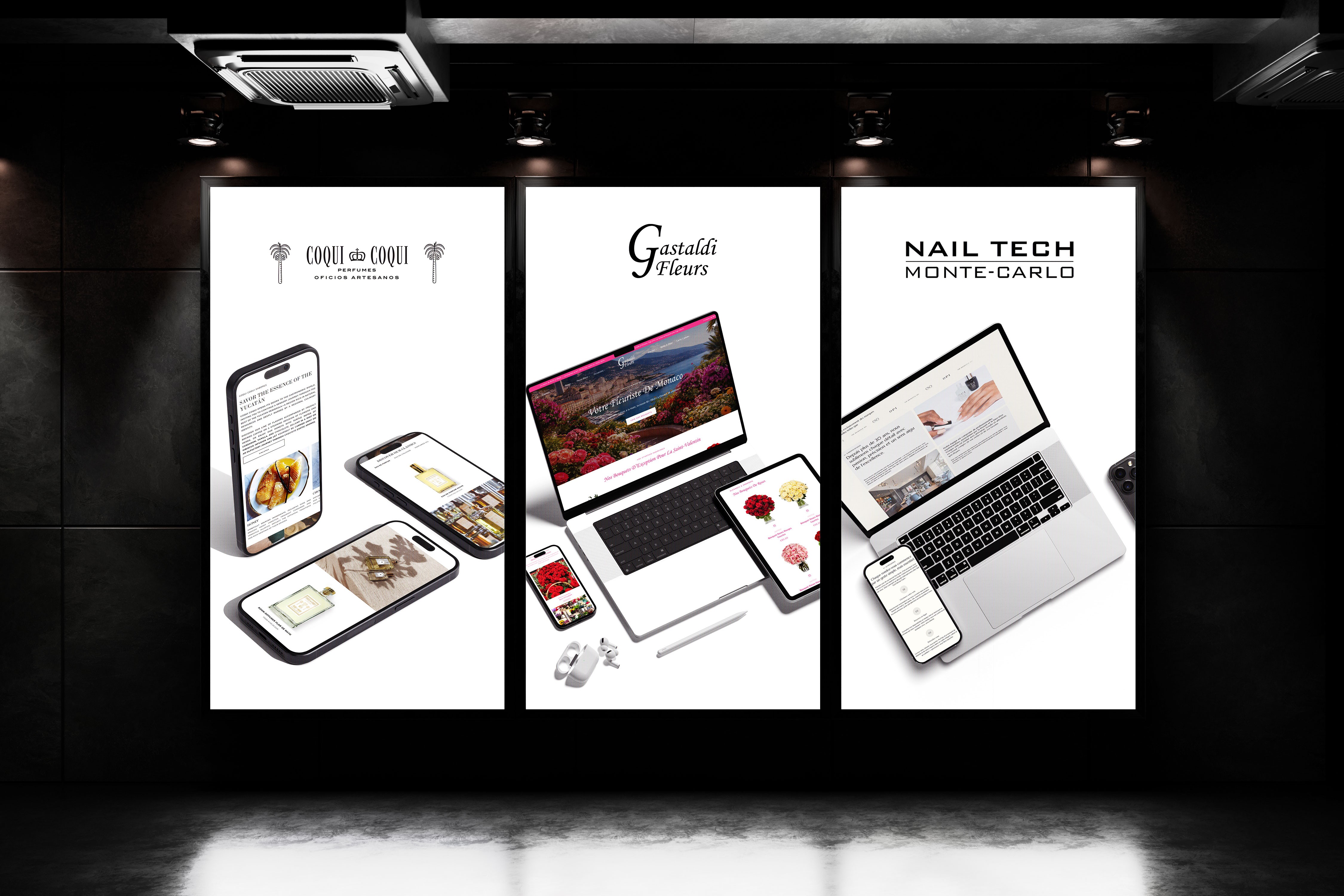

Web. Apps. Results.
digital*
Hi, we are BSS®, a digital
agency focused on Web Development, Mobile App Development and Digital Marketing.

Welcome to BSS Digital Agency
Your digital expert, building tailor-made solutions for exceptional brands. Whether you need a new website, an app or other digital services, BSS delivers flexible solutions, tailored to your needs, project by project.®
Web Services
From Web Design & Development services to comprehensive hosting, regular maintenance, performance optimization, and robust security measures, BSS empowers you to establish and maintain a resilient and secure online presence that fosters success.
Digital Marketing Solutions
Search Engine Optimisation (SEO) Search Engine Advertising (SEA) Google Ads Services (PPC) Social Media Management Email Marketing and much more…






Featured Works
Work Portfolio
Explore our latest projects, thoughtfully designed and developed by BSS. Each one reflects our commitment to innovation, precision, and quality.
We also work with these international partners:
About Us
We take pride in building digital experiences that are not only visually stunning but also highly functional. We’re excited to bring that same dedication to every website, app, and strategy we create.
0+
0+
Years Experience
In the web design industry field.
0+
0+
Years Experience
In the web design industry field.
0+
0+
Projects Completed
Around worldwide in last five years.
0+
0+
Projects Completed
Around worldwide in last five years.
0%
0%
Satisfied Clients
With a great experience and results.
0%
0%
Satisfied Clients
With a great experience and results.
Some of our Services
Made in Monaco
Digital Services
From web design to digital strategy, we bring your vision to life with precision, creativity, and performance in mind.
Design That Engages, Code That Performs
Design That Engages, Code That Performs
Direct Communication via WhatsApp
Direct Communication via WhatsApp
Why Work with us?

Launch in record time — tailored to your brand.
We don’t just build fast, we build smart — with precision, speed, and zero compromise on quality.

One Team - Every Solution
Your Digital Partner


FULL TIME SUPPORT
24/6
Get updates and support directly via WhatsApp or email — fast replies, real humans, and peace of mind.

Client Reviews
Trusted By Experts.
Discover feedback from some of the amazing clients we’ve had the pleasure to work with. See how our design solutions have helped them grow, innovate, and thrive.
FAQ
01
Are all projects fixed scope?
02
Do you offer maintenance plans?
03
Are you eligible for Monaco’s Blue Fund?
04
Can I request changes after the project is complete?
05
What’s included in a typical project scope?
06
Can you design an app for my business?
07
How soon can you start working on my project?
08
Do you also offer digital marketing services?
Let's Work Together
Contact Now
Contact Us
Let’s bring your ideas to life. Reach out to tell us about your project — we’d love to hear from you and explore how we can work together.
Projects, Collaborations, Job Opportunities...
Projects, Collaborations, Job Opportunities...
Available for Projects Worldwide
Available for Projects Worldwide


Web. Apps. Results.
digital*
Hi, we are BSS®, a digital agency focused on Web Development, Mobile App Development and Digital Marketing.

Welcome to BSS Digital Agency
Your digital expert, building tailor-made solutions for exceptional brands. Whether you need a new website, an app or other digital services, BSS delivers flexible solutions, tailored to your needs, project by project.®
Web Services
From Web Design & Development services to comprehensive hosting, regular maintenance, performance optimization, and robust security measures, BSS empowers you to establish and maintain a resilient and secure online presence that fosters success.
Digital Marketing Solutions
Search Engine Optimisation (SEO) Search Engine Advertising (SEA) Google Ads Services (PPC) Social Media Management Email Marketing and much more…



Featured Works
Work Portfolio
Explore our latest projects, thoughtfully designed and developed by BSS. Each one reflects our commitment to innovation, precision, and quality.
We also work with these international partners:
About Us
We take pride in building digital experiences that are not only visually stunning but also highly functional. We’re excited to bring that same dedication to every website, app, and strategy we create.
0+
0+
Years Experience
In the web design industry field.
0+
0+
Projects Completed
Around worldwide in last five years.
0%
0%
Satisfied Clients
With a great experience and results.
Some of our Services
Made in Monaco
Digital Services
From web design to digital strategy, we bring your vision to life with precision, creativity, and performance in mind.
Design That Engages, Code That Performs
Direct Communication via WhatsApp
Why Work with us?

Launch in record time — tailored to your brand.
We don’t just build fast, we build smart — with precision, speed, and zero compromise on quality.

One Team - Every Solution
Your Digital Partner


FULL TIME SUPPORT
24/6
Get updates and support directly via WhatsApp or email — fast replies, real humans, and peace of mind.

Client Reviews
Trusted By Experts.
Discover feedback from some of the amazing clients we’ve had the pleasure to work with. See how our design solutions have helped them grow, innovate, and thrive.
FAQ
Are all projects fixed scope?
Do you offer maintenance plans?
Are you eligible for Monaco’s Blue Fund?
Can I request changes after the project is complete?
What’s included in a typical project scope?
Can you design an app for my business?
How soon can you start working on my project?
Do you also offer digital marketing services?
Let's Work Together
Contact Now
Contact Us
Let’s bring your ideas to life. Reach out to tell us about your project — we’d love to hear from you and explore how we can work together.
Projects, Collaborations, Job Opportunities...
Available for Projects Worldwide


Web. Apps. Results.
digital*
Hi, we are BSS®, a digital agency focused on Web Development, Mobile App Development and Digital Marketing.

Welcome to BSS Digital Agency
Your digital expert, building tailor-made solutions for exceptional brands. Whether you need a new website, an app or other digital services, BSS delivers flexible solutions, tailored to your needs, project by project.®
Web Services
From Web Design & Development services to comprehensive hosting, regular maintenance, performance optimization, and robust security measures, BSS empowers you to establish and maintain a resilient and secure online presence that fosters success.
Digital Marketing Solutions
Search Engine Optimisation (SEO) Search Engine Advertising (SEA) Google Ads Services (PPC) Social Media Management Email Marketing and much more…



Featured Works
Work Portfolio
Explore our latest projects, thoughtfully designed and developed by BSS. Each one reflects our commitment to innovation, precision, and quality.
We also work with these international partners:
About Us
We take pride in building digital experiences that are not only visually stunning but also highly functional. We’re excited to bring that same dedication to every website, app, and strategy we create.
0+
0+
Years Experience
In the web design industry field.
0+
0+
Projects Completed
Around worldwide in last five years.
0%
0%
Satisfied Clients
With a great experience and results.
Some of our Services
Made in Monaco
Digital Services
From web design to digital strategy, we bring your vision to life with precision, creativity, and performance in mind.
Design That Engages, Code That Performs
Direct Communication via WhatsApp
Why Work with us?

Launch in record time — tailored to your brand.
We don’t just build fast, we build smart — with precision, speed, and zero compromise on quality.

One Team - Every Solution
Your Digital Partner


FULL TIME SUPPORT
24/6
Get updates and support directly via WhatsApp or email — fast replies, real humans, and peace of mind.

Client Reviews
Trusted By Experts.
Discover feedback from some of the amazing clients we’ve had the pleasure to work with. See how our design solutions have helped them grow, innovate, and thrive.
FAQ
01
Are all projects fixed scope?
02
Do you offer maintenance plans?
03
Are you eligible for Monaco’s Blue Fund?
04
Can I request changes after the project is complete?
05
What’s included in a typical project scope?
06
Can you design an app for my business?
07
How soon can you start working on my project?
08
Do you also offer digital marketing services?
Let's Work Together
Contact Now
Contact Us
Let’s bring your ideas to life. Reach out to tell us about your project — we’d love to hear from you and explore how we can work together.
Projects, Collaborations, Job Opportunities...
Available for Projects Worldwide






















